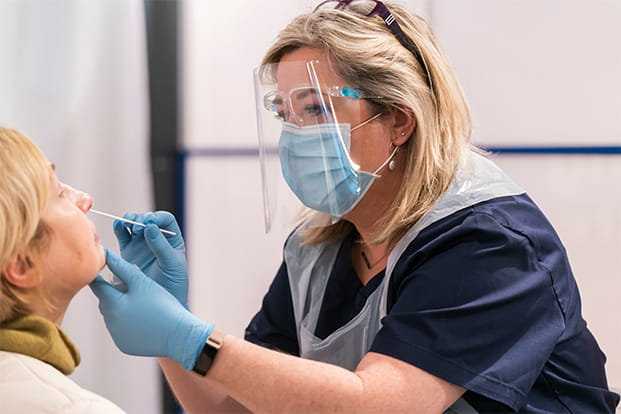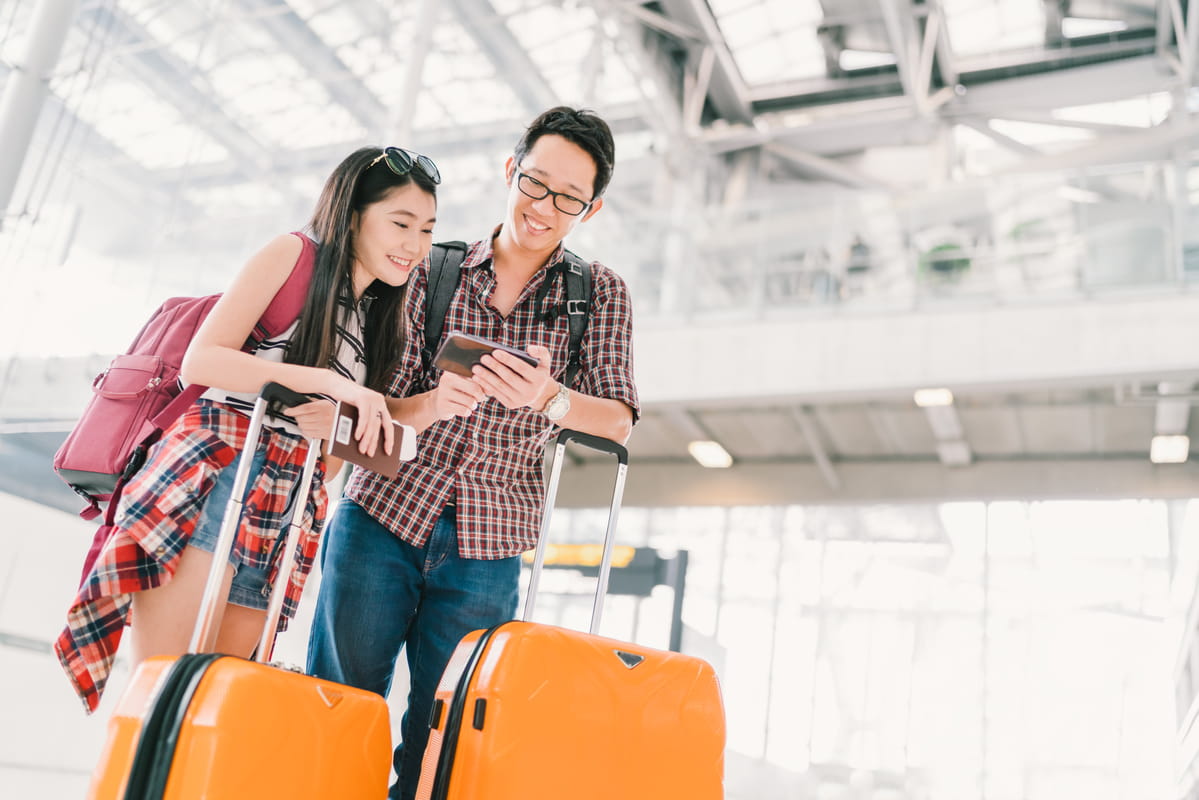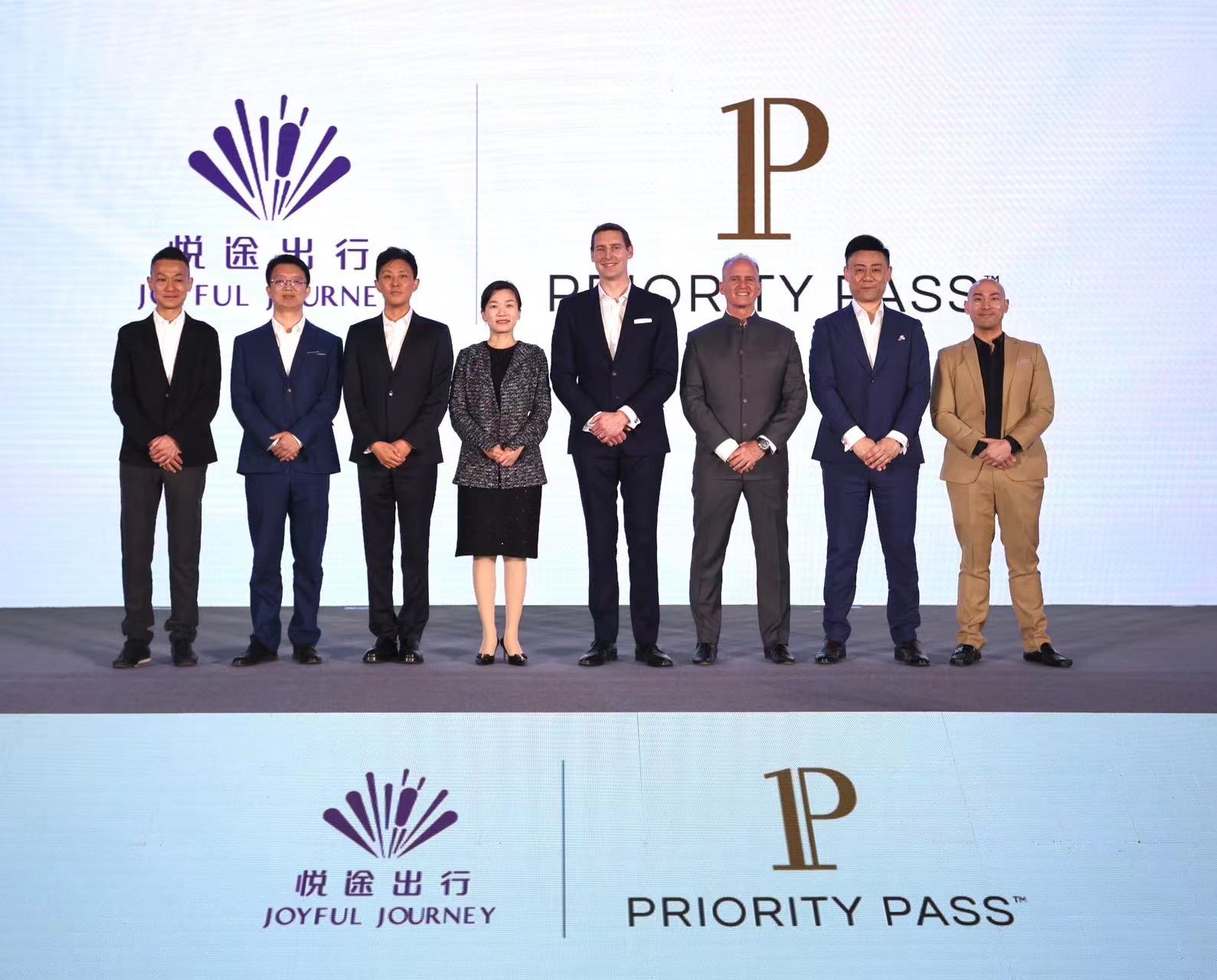
- As the travel industry begins its recovery, new research from Collinson shows mental wellbeing propositions will be key to supporting passengers to take to the skies again
- 73% of travellers worldwide said they’ll be prioritising their mental wellbeing more when they travel now than they did before the pandemic
- 81% said the pandemic has heightened concerns about the impact the journeys were having on their physical wellbeing
While physical wellbeing has been at the forefront of all discussions around the recovery of the travel sector, new research from global traveller experiences expert Collinson has found that travellers are as worried about their mental wellbeing as they are their physical wellbeing.
Societal awareness and the importance of mental health has increased sharply over the past few years and this is no different when it comes to travel. Nearly three quarters (73%) of travellers worldwide have said they’ll be prioritising their mental wellbeing more when they travel now than they did before COVID-19. While there was already a concern amongst travellers about the impact the journeys were having on their physical wellbeing, 81% went on to say the pandemic had heightened these concerns. Despite there being a pent up demand for travel globally, over two thirds (67%) of global travellers think travel post-pandemic will be more stressful in the current climate. When asked what travel brands could do to help the situation, 42% of passengers said they value propositions that show there’s consideration for their mental health on their journeys. Half also said they wanted the same acknowledgement for their physical health.
The findings, taken from two sets of research, one conducted pre-pandemic and the other during the pandemic, show that passengers are of course looking for visible health and hygiene measures once they begin travelling again, such as hand sanitisers throughout the airport (63%), and the enforcement of mask wearing (66%).
When asked why they might be hesitant to travel in light of COVID-19, the top reason people gave was that they were worried they would need to quarantine either on arrival or return (51%). Wanting to avoid long quarantine periods is likely a reason why passengers see testing on arrival as an important ingredient to their travel experience (83%). But interestingly, a similar 82% said that pre-departure testing was also important, which indicates that COVID-19 testing has now crossed the line from being a government pre-requisite for travel to some destinations, to an element that people want to see in order to give them the confidence to take to the skies once more.

Ultimately, passengers are looking for a seamless, stress-free experience, with social distancing measures in place from check-in to arrival, coupled with a quick and efficient journey. As such, over a third (36%) were willing to pay for fast-track security, while nearly two fifths (38%) would pay more for a free seat next to them on the plane, and a third (30%) would pay more for extra leg room.
While 87% of people said social distancing was important to them as they move through the airport, the same proportion (87%) specifically said they wanted access to socially distanced spaces in which to ‘de-stress’ and ‘relax away from the crowds’. In fact, in some countries, including the UK, USA, Russia and Australia, more people said they wanted access to somewhere to relax, than the number saying they wanted somewhere to get some distance. Yet the association of stress with travel is by no means solely linked to the pandemic. Even before Covid-19, nearly half (43%) of holidaymakers reported feeling stressed at least at one point while travelling, and a similar number (45%) admitted they would call in sick from work the next day to recover from a trip.
The importance of mental health on the journey is perhaps surprising but equally a welcome insight into what travellers are looking for as the travel recovery continues to gain ground with new testing and vaccination regimes. This is a way for the travel industry to look at its offering to consumers, allowing travel brands to understand what consumers want and what the industry needs to act on to rebuild traveller confidence.
Collinson commissioned the two pieces of research, of 18.5k travellers in 2019 and 12.6k in 2020.
It commissioned the first round of research to get insights on leisure and business travellers’ attitudes to the journey, and wanted to update this research in light of the pandemic. Collinson believes it’s now more important than ever that all parts of the ecosystem come together to help restore confidence in travel. It cannot simply be up to airports and airlines. All businesses that both form part of the travel journey, and rely on the sector, must come together to solve some critical challenges. Collinson produced it’s “The Return Journey” report as a result, bringing the ecosystem together so all relevant parties can use the insights to help recovery through building one great journey experience, rather than operating as different, individual – and sometimes stressfully disjointed – parts.
“It is well-established that the travel industry has been devastated by the pandemic, impacting everything from trade and economic growth, to hundreds of thousands of jobs in the industry worldwide. While there are some positive signs for travel sector recovery, the only way to make it a success is to understand existing traveller needs and fears, and how these have been compounded by the pandemic”, Evans continues. “It’s so important the travel industry recovers, and even more important that it’s able to do so in a collaborative and informed way.”
“The research shows that allaying people’s concerns around their mental wellbeing could be the key to rebuilding traveller confidence. While, of course, physical health concerns are heightened during this time, so too are those around the impact of travel on mental health – and both must be responded to. By working together on the issues highlighted in this study, anyone with a vested interest in travel can help make changes now to ensure the industry thrives again in the future.”
For a detailed guide on how each and every player in the travel industry can do their part in aiding travel recovery, download the full report.







